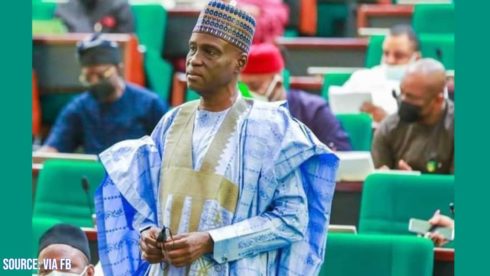The Nigeria Civil Aviation Authority (NCAA) has taken decisive action against 10 private jet operators involved in unauthorized activities. The licenses of Azikel Dredging Nigeria Ltd, Bli-Aviation Safety Services, Ferry Aviation Developments Ltd, Matrix Energy Ltd, Marrietta Management Services Ltd, Worldwide Skypaths Services, Mattini Airline Services Ltd, Aero Lead Ltd, Sky Bird Air Ltd, and Ezuma Jets Ltd have been suspended. This move demonstrates the NCAA’s commitment to enforcing regulations and ensuring safety in the aviation industry.
The suspension is a result of the operators’ failure to comply with the Nigeria Civil Aviation Regulations 2023 Part 18.3.4, which prohibits Permit for Non-Commercial Flights (PNCF) holders from engaging in commercial activities. The NCAA had earlier directed all PNCF holders to undergo re-evaluation, which should have been completed by April 19, 2024. The suspension serves as a warning to other operators who may be engaging in unauthorized activities, and the NCAA has pledged to continue monitoring and enforcing compliance.
Nigeria Civil Aviation Authority Regulations: Understanding the Rules
The Nigeria Civil Aviation Regulations 2023 Part 18.3.4 is a critical aspect of the industry’s regulatory framework. It clearly outlines the scope of activities permitted for PNCF holders, and the consequences of non-compliance. The regulation is designed to ensure that private jet operators do not engage in commercial activities without proper authorization, thereby maintaining safety and fairness in the industry. By suspending the licenses of non-compliant operators, the NCAA is reinforcing its commitment to upholding these regulations.
The NCAA’s actions also highlight the importance of understanding and complying with regulatory requirements. Private jet operators must recognize that adherence to these regulations is not only mandatory but also crucial for ensuring the safety of passengers, crew, and aircraft. The NCAA’s decision to suspend licenses serves as a reminder that non-compliance will not be tolerated, and operators must prioritize regulatory compliance to avoid similar consequences.
Safety Concerns: The Rationale Behind NCAA’s Decision to Suspend Licenses
The NCAA’s decision to suspend the licenses of 10 private jet operators is largely driven by safety concerns. The unauthorized activities engaged in by these operators pose a significant risk to the safety of passengers, crew, and aircraft. By suspending their licenses, the NCAA is taking proactive measures to mitigate these risks and ensure that the industry operates within established safety standards. This move demonstrates the NCAA’s commitment to prioritizing safety and its resolve to take decisive action against non-compliant operators.
The suspension of licenses also serves as a deterrent to other operators who may be contemplating similar unauthorized activities. The Nigeria Civil Aviation Authority’s actions send a clear message that safety is non-negotiable, and any compromise on safety standards will be met with swift and decisive action. This approach is critical in maintaining public trust in the aviation industry and ensuring that Nigeria’s skies remain safe for all users.
NCAA’s Commitment to Enforcement: A New Era in Aviation Regulation
The NCAA’s decision to suspend the licenses of 10 private jet operators marks a significant shift in the regulatory landscape of Nigeria’s aviation industry. The authority’s commitment to enforcement and compliance is a clear indication that the era of lax regulation is over. The Nigeria Civil Aviation Authority is demonstrating its resolve to ensure that all operators comply with established regulations, and any deviation from these standards will be met with swift action.
This new era in aviation regulation is a welcome development for the industry, as it promises to promote a culture of safety, compliance, and accountability. The NCAA’s actions will help to restore public confidence in the industry and provide a level playing field for all operators. As the regulatory authority continues to monitor and enforce compliance, the industry can expect a safer and more robust operating environment.
Consequences of Non-Compliance: Understanding the Risks and Penalties
The suspension of licenses by the Nigeria Civil Aviation Authority serves as a stark reminder of the consequences of non-compliance in the aviation industry. Private jet operators who engage in unauthorized activities risk not only their licenses but also the safety of their passengers and crew. The penalties for non-compliance can be severe, including fines, license suspension, and even criminal prosecution.
The NCAA’s actions also highlight the importance of understanding the risks associated with non-compliance. Operators must recognize that the consequences of non-compliance extend beyond the regulatory framework, posing significant reputational and financial risks. By prioritizing compliance and adhering to established regulations, operators can avoid these risks and ensure a safe and successful operation.
Nigeria Civil Aviation Authority’s Efforts to Educate the Public on Aviation Safety
The Nigeria Civil Aviation Authority (NCAA) is taking its commitment to safety a step further by engaging with the public on aviation safety. The suspension of licenses for 10 private jet operators serves as a call to action for the public to be aware of their rights and responsibilities in ensuring safety in the skies. By educating the public on the importance of safety, the NCAA aims to promote a culture of responsibility and encourage individuals to report any suspicious activities or concerns.
By empowering the public with knowledge and encouraging them to speak up, the Nigeria Civil Aviation Authority is creating a safety-conscious community that can help identify potential risks and prevent accidents. This public awareness campaign is a crucial aspect of the NCAA’s safety strategy, as it recognizes that safety is a collective responsibility that requires the active participation of all stakeholders. By working together, the NCAA and the public can ensure that Nigeria’s aviation industry remains safe and secure for all users.
Table of Contents
Discover more from OGM News NG
Subscribe to get the latest posts sent to your email.













